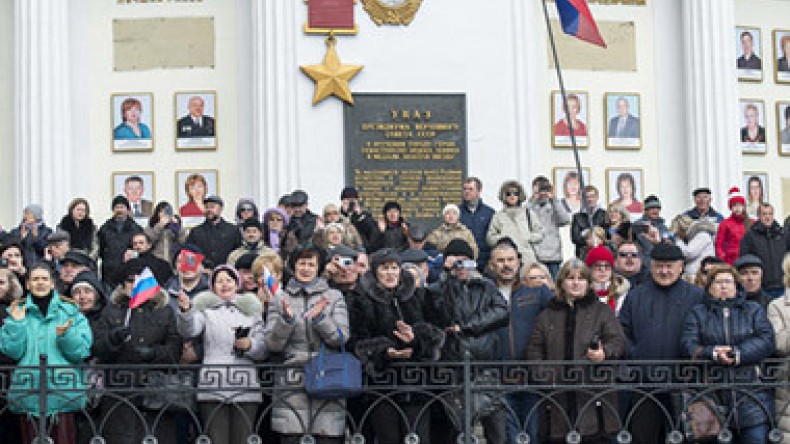
Crimea: one year on
By Dr Alexander Yakovenko, RT
A year after the peaceful reunification of Crimea with Russia I can still hear some of my British friends who refuse to believe last year’s events reflected the will of the Crimean people, and was handled by Russia in a legal and appropriate way.
Let me try to explain once again. It will be helpful to give some background to dispel the predictable doubts regarding the unprecedented unanimity of the popular vote.
It’s worth mentioning that for a number of historical reasons the overwhelming majority of Crimeans are a population of predominantly Russian origin, who have always strongly identified with the Russian nation; the local community constitutes an important part of the Russian-speaking world and has close ties with the rest of Russia.
Crimea has always held a special place in Russia’s history and national consciousness. The peninsula became part of our country during Catherine the Great’s rule in 1774. In addition to being an important strategic point, the Crimea provided a setting for a number of landmark events, which played an important role in the formation of our national identity, such as the baptism of St Vladimir in Chersonesus, the heroic defense of the peninsula during the Crimean War and WW2, or the epoch-making Yalta Conference of 1945. A whole host of Russian public figures, authors and artists lived and worked in the Crimea, like Pushkin, Tolstoy and Chekhov.
By a whim of history, Crimeans were denied the right to be a part of their nation, living the life of uncertainty as a vulnerable minority in an unstable country. With terror the Crimeans watched the events in Kiev, western and central parts of Ukraine in 2013 and early 2014: the rise of radical Ukrainian nationalism, intolerance, anti-Russian hysteria. Parts of the country were rampant with constitutional abuse, street riots, sieges of administrative buildings, police stations and military units. From the very beginning the Crimeans chose to disassociate themselves decidedly from what was happening elsewhere in Ukraine, insulted by the anti-Russian rhetoric of the Maidan leaders and activists, alarmed by their calls to “hang Ruskies” and protested against the illegitimate installation of the new leadership.
The advent of the new regime was marked by a severe lack of democracy; certain developments posed a direct threat to the well-being of the Russian-speaking inhabitants of the Crimea: two days after the coup d’état the Verkhovna Rada legislated to abolish the 2012 Law on the Fundamentals of the State Language Policy, which had preserved the right of ethnic minorities to preserve and use their native languages. Peaceful anti-Maidan protesters from the Crimea were brutally assaulted.
So, a proportion on Ukrainian citizens that never really belonged to their country culturally and psychologically lost the hope of finding protection from their newly-installed government and was faced with the choice of becoming an oppressed minority or severing their ties with the hostile regime to secure a future for themselves and their children.
The decision to hold a referendum was made by legitimate local authorities, the independence of Crimea was proclaimed and an appeal to enter the Russian Federation was made based on the indisputable results of the popular vote. Standards of international law were fully observed as the right of nations to self-determination enshrined in the UN Charter was exercised freely by the Crimeans. Crimea was recognized as an independent and sovereign state by Russia, and on 18 March 2015 in the Kremlin, Moscow, the two countries signed a Treaty of Unification, under which the Republic of Crimea and the city of Sevastopol became two new subjects of the Russian Federation.
Let us take a look at the outcome. While entire regions of Ukraine are engulfed in a brutal war, and the population is being fed with shameless nationalist propaganda, the Russian Crimea is enjoying peace, stability and steady growth. What could be a better proof that the decisions made a year ago were the only right ones?
Newsfeed
Videos






























